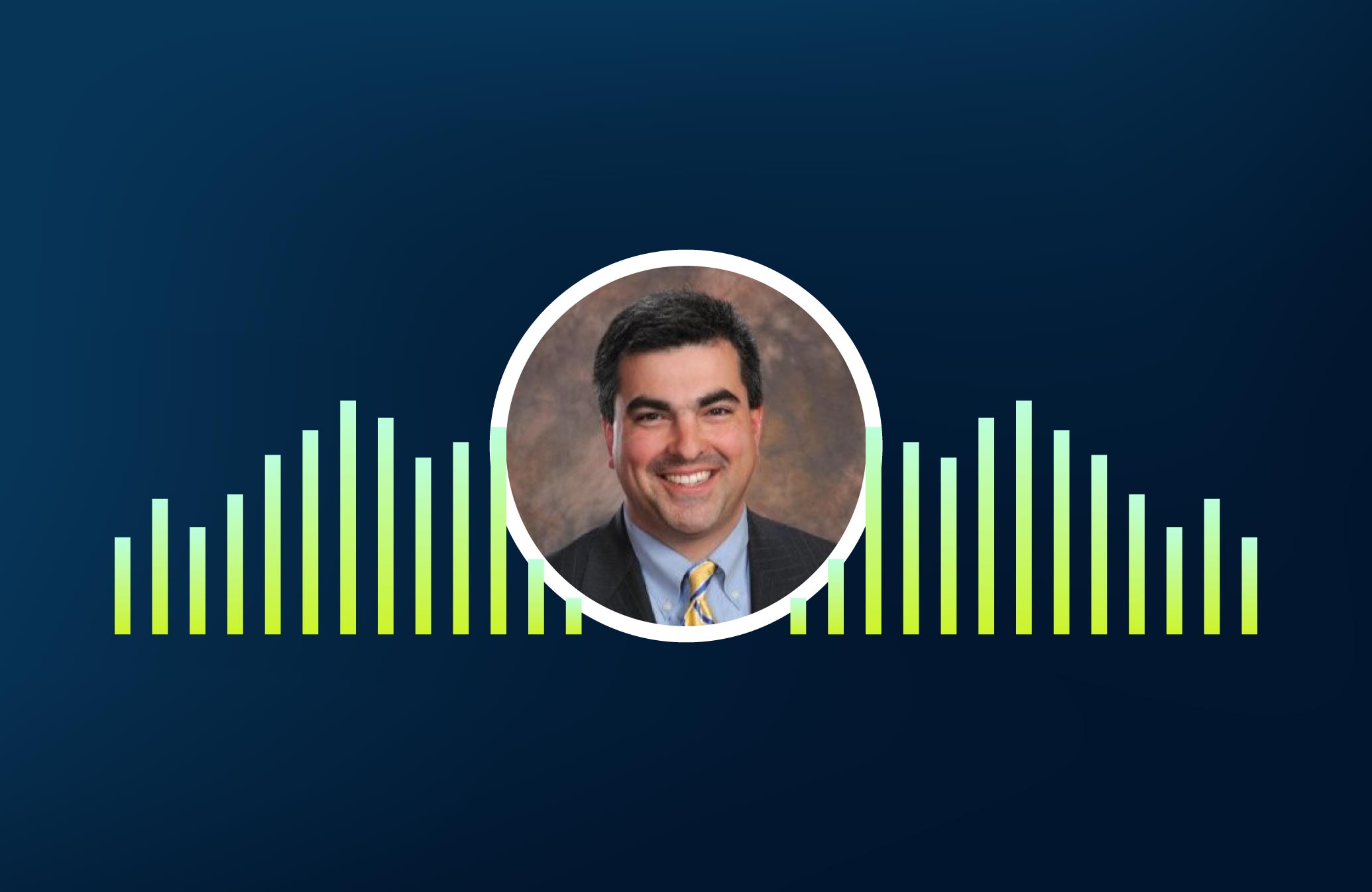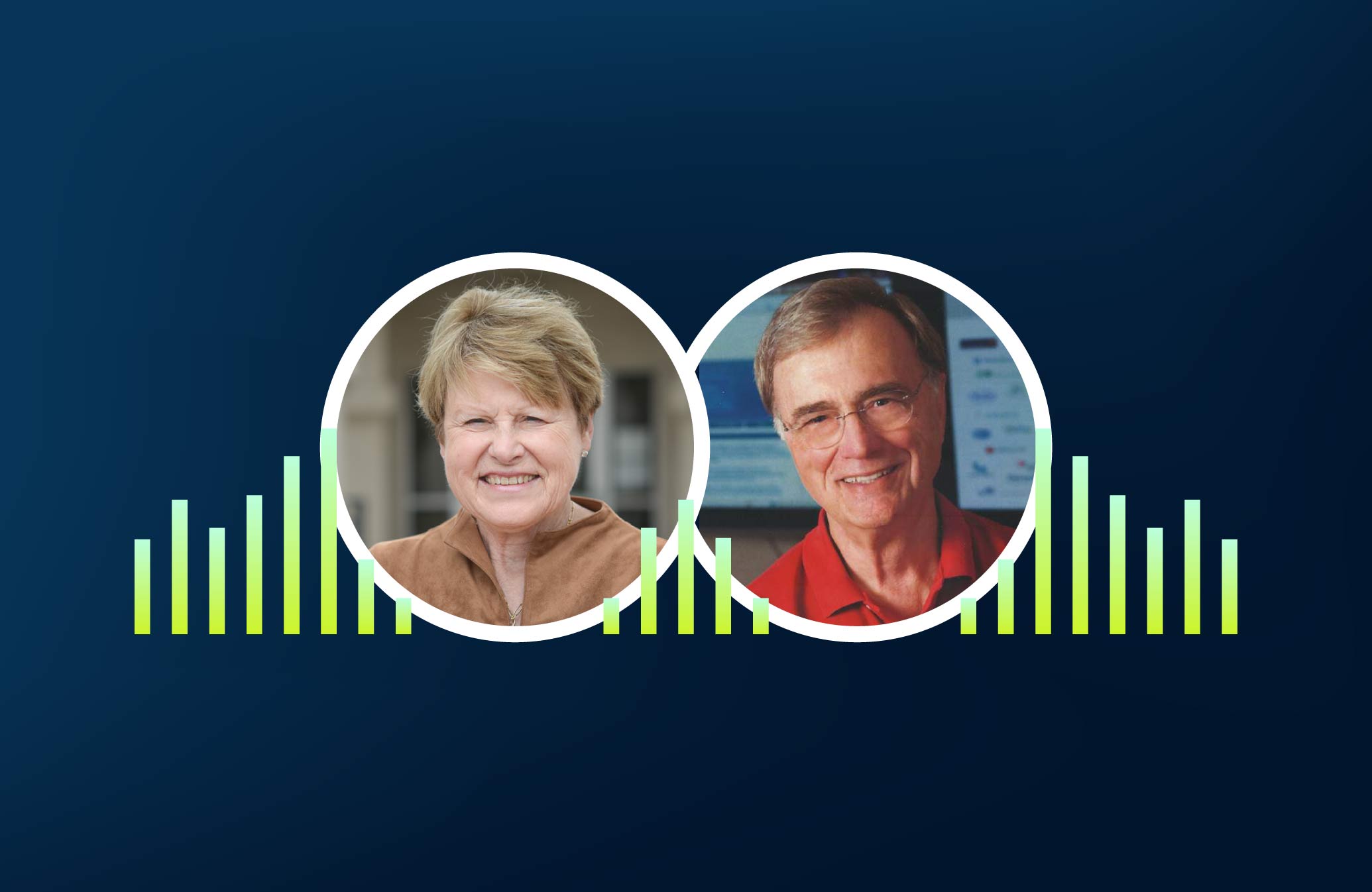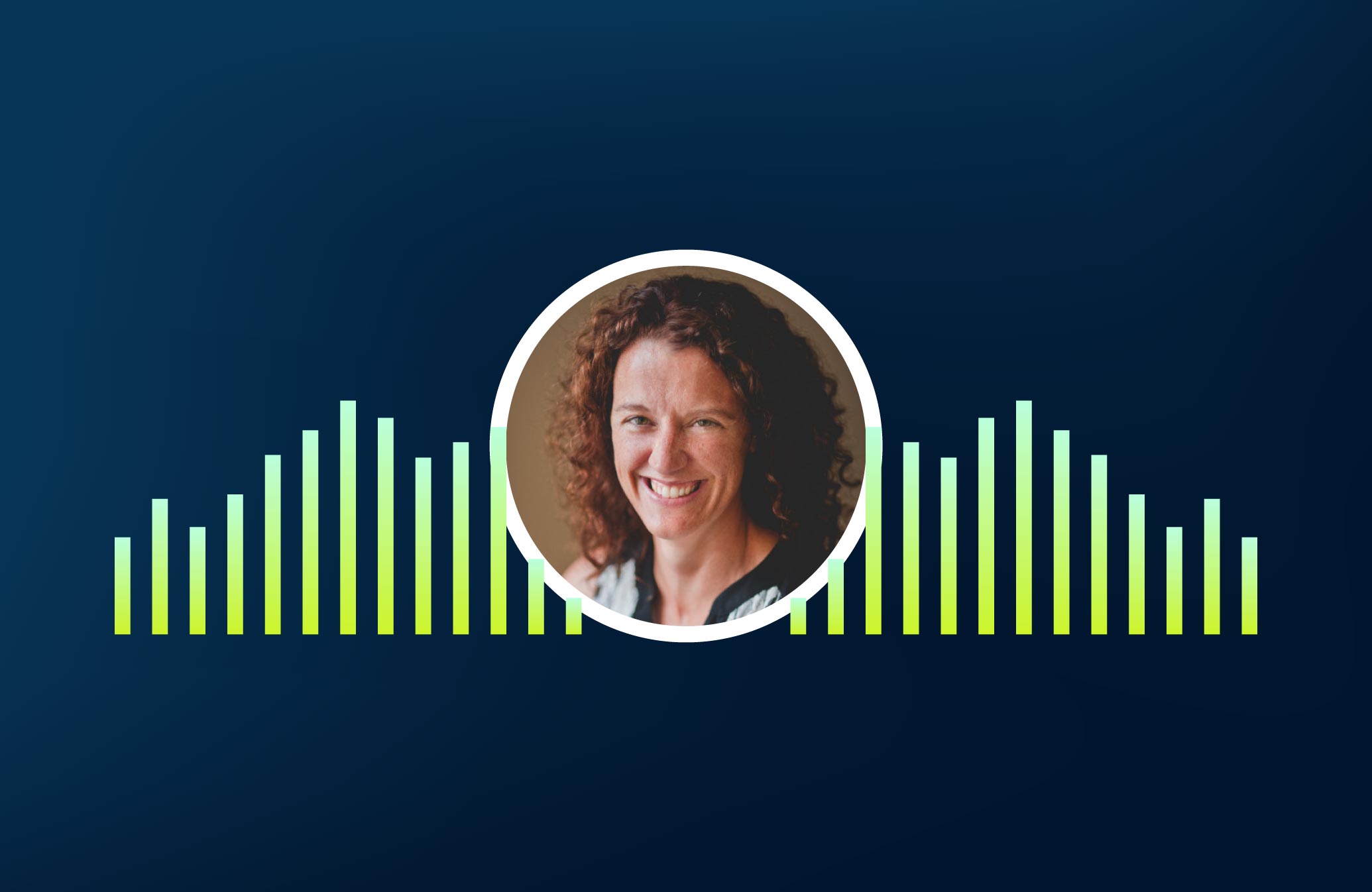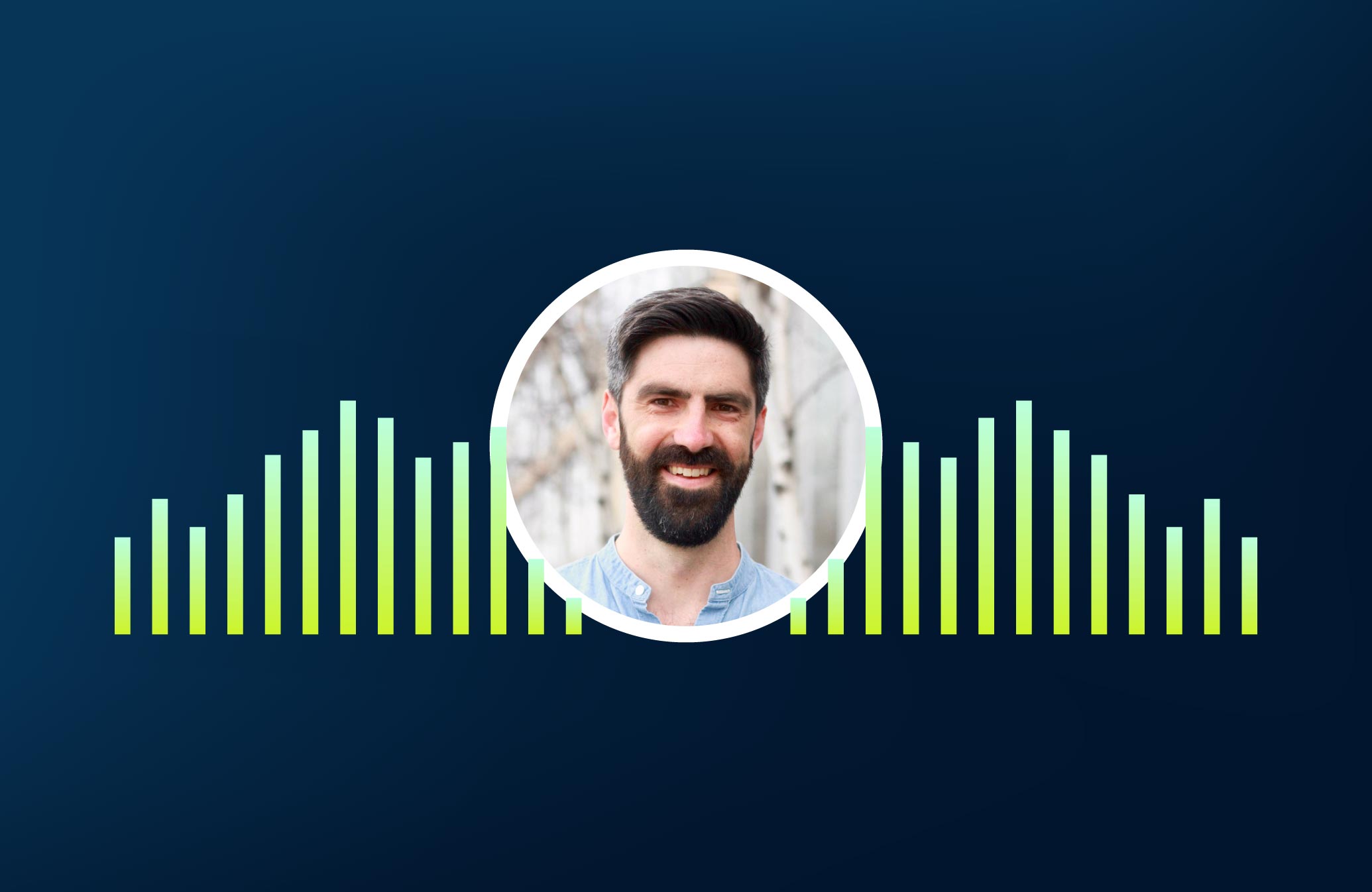Listen Now
Episode Transcript
Announcer [00:00:01] Welcome to RadioRev, podcasting from the heart of healthcare in Minneapolis, Minnesota. This is the podcast for change makers looking to do more than just health engagement. It’s about getting people to take action and do things that actually improve their health. It’s a radical idea, right? So we’re talking with the leaders, innovators, movers, and shakers who are bringing new ideas, inspiring others, and leading the way.
Jenn [00:00:26] Welcome to another episode of RadioRev. I’m Jenn Dellwo. Thank you for joining us for season two. This series of episodes dives deep into Social Determinants of Health, offering various viewpoints on the topic with a different industry expert each week with the hope that you take away new ideas, perspectives, and are inspired to look at SDoH in a new light from all angles. As a collective, the goal of these conversations is to inspire innovation and motivate the healthcare industry to work together to create meaningful solutions that help people live stronger, healthier lives. Today, we’re joined by Craig Kennedy, CEO at MHPA. Craig, welcome to the show. Thank you so much for being here.
Craig [00:01:03] Thank you for having me, Jenn.
Jenn [00:01:04] We’re really excited. I’m really looking forward to this conversation. The first order of business—we’re going to start with some music trivia. What’s your favorite ’80s song?
Craig [00:01:15] Well, having looked up the podcast in the past, I was somewhat prepared for this question, of course. But my favorite ’80s song, that I could listen to over and over again, is Dire Straits’ “Sultans of Swing.” I always leave it on when I hear it on the radio. I’m a huge Dire Straits fan. And so, of course, “Sultans of Swing” jumps out, but I have a whole raft of Dire Straits songs that I could also bring up. And then also, since it’s in the ’80s, and it’s kind of my wheelhouse here, every time I take my daughters to soccer, sports, swimming, or anything, we play AC/DC’s “TNT” to get them ready to go for their athletic event. Very different, of course, than Dire Straits’ “Sultans of Swing,” but AC/DC’s “TNT” also makes the list. {music plays}
Jenn [00:02:20] I love it. I love that you’re listening to it with your daughters to get them pumped up. OK, so why don’t you start by telling us just a little bit about yourself, a bit about your background, and how you came to head up MHPA?
Craig [00:02:35] I’ve just been here a couple of months, so I was very excited to join MHPA back at the end of 2019. Before that, I was the Executive Director of the Association of Clinicians for the Underserved (ACU). They were primarily focused on getting clinicians in underserved areas of the country. And I was there for about six and a half years. And before that I worked for the National Association of Community Health Centers, who also work in underserved and shortage areas of the country, delivering primary care. And I did their policy-related work for 13 and a half years. So association activities for almost the past 20 years. But before that, I worked on Capitol Hill. And I worked in the House, and I worked in the Senate. I worked on mandatory programs. I worked on discretionary programs. And so I really have a policy background. I come at all of these different association activities from a policy-related background. But I really like how all of it fits together. And I’m really excited to be now here at MHPA where the footprint is huge. I’m just gonna be honest with you. Medicaid has a footprint of 70+ million people across the country. So I’m very excited to be here because I’m really focused on underserved populations and healthcare.
Jenn [00:03:57] Thanks for that background. And for those that might not be familiar, what does MHPA stand for? Tell us a little bit about the organization and the work that you guys are doing.
Craig [00:04:08] Sure. It’s the Medicaid Health Plans of America, MHPA. They’ve been around since the mid ’90s, and before that they were the Urban-Based HMOs Association. They’re the association that focuses on Medicaid and managed care. So about 70 to 72 million people today are on Medicaid in some form across the country. About two-thirds to three-quarters of that are in managed care plans. And so we represent that managed care part, which is most of Medicaid. And most people don’t know that, that most of the people on Medicaid today are in a managed care plan. And so we represent those managed care plans within the Medicaid space specifically.
Jenn [00:05:03] So now that you’ve been with MHPA for a few months, what was it that drew you to the organization, and what is it that you like most about it?
Craig [00:05:12] Well, what drew me to it was, again, the footprint of this. So ACU, my previous job where I was the Executive Director, had a footprint of about 10 million people. And they really focused on the National Health Service Corps. So helping about 10 million people get access to care at my last place. The job before that where I was Policy Director was Health Centers, and we were able to grow that to 27 million patients served across the country. Medicaid has a footprint of 70 million people, so what you’re able to do and the policies you’re able to work on impacts so many people across this country in need. Of course, there are tens of millions more uninsured, living in shortage areas, underserved communities across this country. But Medicaid’s footprint is something that I was really excited about, and I wanted to make sure that I did the most I could for people in need across this country.
Jenn [00:06:15] Making a real impact. So the main focus of our conversation today is about Social Determinants of Health. And over the last couple of years, this has popped up as a major topic within the healthcare industry. There have been conferences dedicated to it. And I feel like you can’t go online without seeing new articles every day about SDoH. So in your view, why is addressing them so important right now?
Craig [00:06:42] I would say that it’s really coming into its own where people are recognizing the need, although it’s been the core of health for a long time. And I think people realize that there’s the medical aspect, of course. Everybody has those statistics about the medical aspect being 10 percent or 20 percent of the health of an individual. But the social determinants are a huge percentage as well. That’s always been the case. And I think we’re just now finding the language and the mechanisms and the will to make that effort real. This is my own plug, which is in the managed care space, but that’s what they’ve always tried to do, which is have this flexibility to address other things that are affecting their health. And so we’ve kind of been in the social determinant business for quite some time in the managed care space. But we’re very excited to see the recognition, the importance, the impact, the policy space all moving toward greater recognition of the various moving pieces that impact people’s health because, and I think we’ll get into some of this, the social determinants puts a label on it. But it’s very multifactorial. And there’s not just one thing that is the Social Determinants of Health. There are just so many things that need to help people be healthy in this country. And so looking forward to discussing that today.
Jenn [00:08:09] It’s the perfect segue, because in previous conversations that you and I have had, you mentioned there isn’t a one-size-fits-all solution to Social Determinants of Health. Can you talk a little bit more about what you mean by that?
Craig [00:08:22] I’ll just do it from a personal background, to be honest with you. I grew up in Oregon, a rural town of 2,000 people, the booming metropolis of Rainier, Oregon. Actually I say 2,000, but if you came in from one side of the town it says 2,000, but if you came in from the other side, it’s at 1,620. We just didn’t have the money to change the sign, I think. And I didn’t even live in Rainier proper. That was the town. I lived further out into, we’ll call them the suburbs, the suburbs of our 2,000-person town. I lived in between Rainier and Clatskanie. We were out there. I lived in a single-wide trailer out in the woods. My parents, one worked in a mill, actually an aluminum mill, and the other one had part-time work periodically. And so our healthcare access was limited, although we did have insurance. I think there was a dentist in the town, and that was it. We had to go to Washington State. We had to cross the bridge, go to Washington State, to get access to care. So obviously, transportation is an issue. And a lot of folks talk about that from social determinants. But there’s a lot of other things that go into it. We’re from Oregon. The doctors, nurses, and healthcare facilities are in Washington. We’re low-income mill folks. We have a certain stigma about us. We have a lot of different things going on, and a lot of challenges beyond just transportation—education, understanding of the healthcare infrastructure, an unfamiliarity in general. So access to care was extremely important to us as it is with everybody, but also unfamiliar. And so addressing some of those things about how people can be comfortable accessing the care that they need when they need it is incredibly important from a medical perspective and a social perspective. Just recently, well in the last couple of years, they did put a health center in the high school, which is great, in Rainier. I went back a couple of years ago, and I saw that there was a health center in the high school. And I was like, you know what? That is tremendous progress to get access to care for an underserved population. And more needs to be done.
Jenn [00:10:59] So what I’m hearing is, when we’re talking about social determinants, we can’t just pick one thing and focus on that and then that’ll solve all of our problems. There are a lot of different things that need to be solved in order to make a difference?
Craig [00:11:14] Yeah, and a good example was, you hear this all the time, you need a dental appointment every six months. Of course we’d only go once a year. When would you go? When would you actually need to go to the dentist? During business hours? Well, my parents are working, or I’m in school. Even if you say, OK, go in the summer, go on a day off, my parents don’t have a day off. They’re working 12:00 at night to eight in the morning. They’re working the graveyard shift. They’re working swing shift. My mom’s a part-time worker. I’m in school. What does it mean to take your kid to an appointment at 10:30 in the morning? We couldn’t do that. My mom wouldn’t get paid. Let me just say, my mom doesn’t show up for work, she doesn’t get paid. So you want her to take me out of school, take me to a dentist that we then have to pay for or wake up my stepfather who’s working graveyard that week so we can make a dentist appointment? That’s just difficult. It’s a huge request. And then to say, oh, it’s just a routine thing. Then they’re like, OK then, we’re not doing it. We go to healthcare where it’s an emergency. And that’s what we knew. Boy, if it was urgent, we would go. But routine? That’s just difficult to get to.
Jenn [00:12:41] Right. And so because you have this personal connection, the passion you have for this topic clearly shines through as you’re speaking. Is there a specific moment that you discovered this was something you wanted to pursue professionally?
Craig [00:12:55] There were a couple. And I’ll point out one in particular. I was working for a congressman from Salem, Oregon, so the middle of the state. Rainier’s northwest, about two hours away from Salem. And I was working on all domestic policy because in Congress, you don’t get to just work on one issue unless you’re very high up. So I was working on all domestic policy for the congressman and I went out to the district. I was in Salem, and they invited me out to go visit a health center, a community health center, that had started just in eastern Salem. I was like, you know, I’ll go see it. And I went to college in Salem, I’m familiar with the city. And I went out there, and it was a converted Safeway. It was a large facility. I mean, it was an abandoned Safeway supermarket. It just was. They had emptied it out, obviously, and they had put up these movable walls, and they said this is the location we could afford. This is where all of the low-income, uninsured, migrant populations can come for healthcare. And I walked in there and I thought this is more than they had, I’m sure. But this is not great. I could hear through those walls. There was no roof because it’s a Safeway and it’s 20 feet high or 30 feet high. And the walls were only six or eight feet high. And I was like, we could do better than this. These are real people. These are the people I grew up with. These are my family. I was just walking through there going, we have to do better than this. These aren’t “low-income, uninsured people.” These are residents of the town of Salem, Oregon. These are people. These are the people I grew up with in Rainier, Oregon. And it kind of made me mad. But then it kind of made me feel like I could make a difference in this because I was working in Congress, and my job was to get them funding. I said, “You know what? I’m going to go back to the congressman, and we’re gonna see if we can make this a priority.” And he did. And we were able to do that all the way through his term. I was able to do it through my work at the National Association of Community Health Centers, through ACU. And I’m looking forward to doing more here.
Jenn [00:15:24] That’s amazing. You’ve alluded to this a little bit, but what are some of the personal challenges and complications that can affect individuals that we might not be thinking of?
Craig [00:15:35] Well, there’s a lot that we’ve brushed on, obviously—the transportation, the timing, the work, your job, and stuff like that. And folks come up with those things all the time. And from the social determinant aspects, people have a lot of different things that pop up. But the one that jumps to my mind every time, and again, this is from close-personal experience, not personal-personal experience, but we had a friend of mine come speak when I was at ACU about what she was doing to help populations access healthcare. She was a lawyer, and she said, “Most of my clients have four to five unresolved legal issues.” And I thought to myself, four or five unresolved legal issues looking at them right now. You know what? I know those folks. That’s who I grew up with. I know what that is. That’s not just a traffic ticket. It’s a divorce. It’s a bankruptcy. It’s an eviction. It’s a credit issue, Visa or MasterCard are out to get you. Credit card debt. There’s a lot of different things that are happening coming at you, just living your life, that are massive challenges. When four or five unresolved legal issues are happening in your life, getting back to that six-month dentist visit is secondary, right?
Jenn [00:17:17] Absolutely, yeah.
Craig [00:17:17] You say I got to take my kid to a six-month dental visit, and you’re like, can’t it just be every year? And maybe you only do it in the summer when he’s out of school. And I’m getting evicted. I got to show up in court for my custody hearing. My parents are divorced. I know what custody battles are like, and child support payments. We’ve always heard the stories of a lot of folks. My parents did pay their child support. So no bad things there. But there’s a lot of folks that don’t. And so what does that entail? What does that look like? Four or five unresolved legal issues? That is a Social Determinants of Health issue. Legal issues need to be part of that discussion. How do we help people through the legal challenges facing them? Housing is always something you talk about. But I’m telling you, there’s a legal aspect to the housing aspect of it. Maybe you’re on disability, and you’re challenging your disability determination. There’s a lot of things that clump into unresolved legal issues. And I think we sometimes miss that when we just say ‘social determinants.’ Think of unpaid child support. Think of evictions. Think of bankruptcies. Think of things that are happening all across this country. That’s a challenge to getting access to care because, boy, that takes over your life.
Jenn [00:18:51] Absolutely. And it gets back to why are you concerned about going to the doctor, as you mentioned, going into the dentist twice a year when you have all of these other major things that are having a dramatic impact on your life and your future?
Craig [00:19:05] It’s taking your mental energy too, right? How much can you focus on? And Medicaid, we have a huge disability population within the Medicaid space. Your disability determination—if you’re in a legal challenge about your disability determination, that is incredibly important in your life. It impacts your health. It definitely does. We know that for a fact. Obviously, it does. Your disability determination, what percentage of a disability, drives your healthcare coverage and access. But you’re then challenging it because you’re in a six-month waiting period of something else. There are things happening. This is a massive issue within the Medicaid space. And so social determinants writ large is a big issue. But there are aspects of it that just jump out at me as huge challenges that we need to help with. And I’m really, really glad that it’s come to the fore that people are sitting there talking about Social Determinants of Health. Now, we need to talk about specifics.
Jenn [00:20:12] Are there any organizations that you know of that are doing any sort of innovative things within the legal space in particular to address this at this point?
Craig [00:20:21] Yeah. My friend was the head of the Medical-Legal Partnership, MLP. They help health center patients with the legal challenges that are facing them on a pro bono basis. They’re grant funded. And so just remarkable. There’s a lot of examples of these in the social determinants space. Medical-Legal Partnership is something I would point out to everybody under the sun because they’re wonderful people. But there’s a ton of organizations focused on different aspects of the Social Determinants of Health. I worked with one group that did home visits for first-time, at-risk moms so they can walk them through, just in their house, what kinds of things would lead to better outcomes. And so, as a first-time mom, you’re thinking about a thousand different things anyway in your life. And now you’re gonna have this newborn baby come home. Boy, if you had somebody that could come to your house and help you through it. The Nurse-Family Partnership people are wonderful, wonderful people. But there’s a lot of these, Medical-Legal Partnership, Nurse-Family Partnership. There’s a lot of folks that are really working hard to address some of these social determinants. And so, I’m glad to know all of them.
Jenn [00:21:42] What do you see as the biggest barrier or barriers to successfully address social determinants?
Craig [00:21:49] Well, everybody jumps right into the historical silos of these different aspects, right? Housing is somewhere. Legal is somewhere. Disability determinations are somewhere else. Education is somewhere else. All these things are all siloed within the public assistance space. And that’s a real barrier. It factually is a real barrier. Got it. I would love to have more of the folks working on housing and asthma, because asthma and housing go hand-in-hand with healthcare providers and emergency rooms. How do we get those folks all to work together so that you can say, “You’re having asthma because you have mold in your house, in your public housing. And so your public housing needs to be fixed.” And the medical folks know that. They know that, they can see it. They can see your visits to your emergency room. And the doctors can say, “Yep, that’s what’s causing your asthma flare-ups, and why you’re having trouble.” But they don’t have the authority to fix your housing. And that’s a problem. And so the silos are what everybody points to right out of the gate. There just needs to be more flexibility. And MHPA, one of our cornerstones is working on flexibility to improve the healthcare of underserved populations. And so we sit there and think of ways to be flexible within this Medicaid space. We’re spending billions and billions of dollars on the healthcare of folks. Let’s make it as effective as possible. And let’s have some flexibility on how we use that money so that we can address the needs.
Jenn [00:23:37] So would you say that’s one of the things that healthcare is missing when it comes to addressing social determinants?
Craig [00:23:43] Well, it’s missing, unfortunately, on purpose. I mean, some of the laws are just written that way, that it has to be this siloed aspect. But one of the other aspects that healthcare, I think, can do a better job at, and there’s a lot of folks working on this, too, is getting the data. Between the different aspects, I think we can work on this probably first, which is housing data, education data, training data, asthma, all these things, emergency rooms to private practices. All the data needs to be interoperable. And yes, that term gets thrown around thousands of different ways. But the interoperability of all data and the sharing of data through platforms. This is what the Office of the National Coordinator has been working on. This is what a whole bunch of people have been working on. We’re strongly supportive of it all. But all these things, even the data about all of these different aspects of one person’s life, are still so siloed that it needs to be shareable and interoperable. The global healthcare space needs to be flexible enough to be able to address those issues. So we need the data and the flexibility.
Jenn [00:25:05] Do you think we’ll ever get there?
Craig [00:25:07] I do. I have a degree in computer science. And so I always get frustrated that it hasn’t gone so much faster. I’m like, oh for gosh sakes! Years ago, I used to program stuff that would move data back and forth between different systems. You have to be able to do it today. And I guarantee it will come to pass. There will be a day where we have interoperable systems. It’s just a matter of time. There’s no doubt in my mind. And so I’m very optimistic that the data sharing will be much more seamless than it is today across all swaths of assistance in this country so that we can better help people.
Jenn [00:25:56] I like your optimism. I think having a positive outlook on it makes it more likely to happen. Because when people work together, and they want to make it happen, it’s more likely to happen.
Craig [00:26:07] Yeah. And I think there’s incentives all the way around to stay in their silos, but it doesn’t do what we all want to have happen, which is better health, better outcomes, more productive people, happier, healthier people. I think we just need to make it personal. It’s not “those people.” It’s the town I grew up in. It’s my cousins. It’s my family. It’s the people that are all around me. It’s not some nameless, faceless person that’s accessing Medicaid somewhere. It’s my cousin. It’s the guy I grew up with, my neighbor. And when we look at it like that, we will be successful. We will find a way to be helpful because people want to help their neighbor.
Jenn [00:26:56] Absolutely. Does MHPA have anything planned in the future that you can share to help bridge this gap?
Craig [00:27:04] Social Determinants of Health is one of our five top priorities. Our board has come up with five strategic priorities for us, integrating all healthcare aspects. Behavioral health and medical is one of the top ones. State flexibility, secure financing, long-term services and support, and addressing the Social Determinants of Health. And so we have several different aspects that we’re working on within the Social Determinants of Health, within the communication space, within the education space. Just getting the word out to plans. And again, health plans have done a real cutting-edge job of being flexible, which is their design, to address a lot of these. But we’ll be working with Congress in particular on Social Determinants of Health as they gear up to make a bigger, stronger impact in this space as well. Because as you said in the beginning, there’s a lot of interest in this topic these days. And we’re hoping to leverage that so that we can break down some of these silos, share a lot more data, and make a better, bigger impact going forward on the lives of the folks that need it.
Jenn [00:28:18] Definitely. Well, Craig, thank you so much. This has been a really valuable conversation that I think a lot of people will take a lot away from. On the personal side, I wanted to end with a question. What’s the coolest thing you’ve done lately?
Craig [00:28:31] I’m not that cool, unfortunately. This is gonna sound strange. So the coolest thing I’ve done, besides living through my children—I have one I just shipped off to college, which I thought was pretty cool. And then I have twins in their freshman year of high school that just made district championships in their two respective sports. So I’ve been to both of their district championships, track and swimming. But I’m not nearly as cool as my children. And so mine: I spent 24 hours making slow, slow-roasted pepper pork chops. I brined them. I put them in cracked pepper. I did the whole shot, and they came out remarkable. I’m going to say that dinner was phenomenal. The whole family loved it. I made some just terrific pork chops lately.
Jenn [00:29:36] I think that’s pretty cool. You need to give yourself more credit!
Craig [00:29:39] It’s not that cool. But boy, of the things that jump out at me in the last couple of weeks that I’ve done, boy, those pork chops stand out.
Jenn [00:29:47] I love that. Well, Craig, thank you so much. If people would like to connect with you, what’s the best way for them to get in touch?
Craig [00:29:54] Our website is mhpa.org, or they can email me directly. I’m ckennedy@mhpa.org. And then we also have a conference later on in October 2020. We have a Medicaid conference, and Social Determinants of Health will be a big part of that. We’re really looking forward to our partners, like you guys, being part of that conference and working with all of our plans and all of our partners to really make a difference going forward.
Announcer [00:30:27] Thanks for joining us for the RadioRev podcast brought to you by Icario. If you found today’s conversation as informative and energizing, as we did, please take a moment and subscribe to the podcast. As always, we invite you to learn more about us and check out all of our content at dev-revel-health.pantheonsite.io/RadioRev.
Inside the Episode
Craig Kennedy is the CEO at Medicaid Health Plans of America (MHPA). In this episode, Craig discusses the personal challenges and complications that we often don’t think of when we discuss SDoH, including his own personal experience growing up in rural Oregon. Questions we discuss include:
- Why is it important to address SDoH now?
- What is healthcare missing when it comes to SDoH?
- What are the challenges and complications that affect individuals that we don’t traditionally think of?
To keep the conversation with Craig going, connect with him on LinkedIn.
“Access to care is extremely important to people, but often unfamiliar. Addressing the SDoH factors around how people can be comfortable accessing the care that they need when they need it is incredibly important from a medical and a social perspective.”
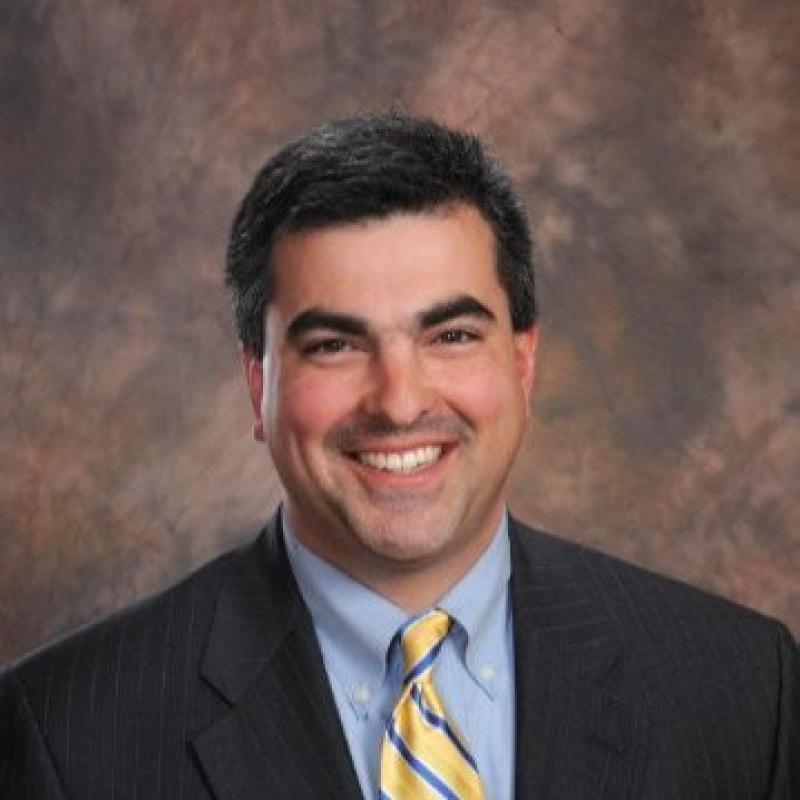
Craig Kennedy
CEO at Medicaid Health Plans of America (MHPA)
Can’t get enough of RadioRev?
We’ve got an entire season dedicated to social determinants of health to keep you inspired! Listen to the next episode in the series for another new perspective on SDoH.

